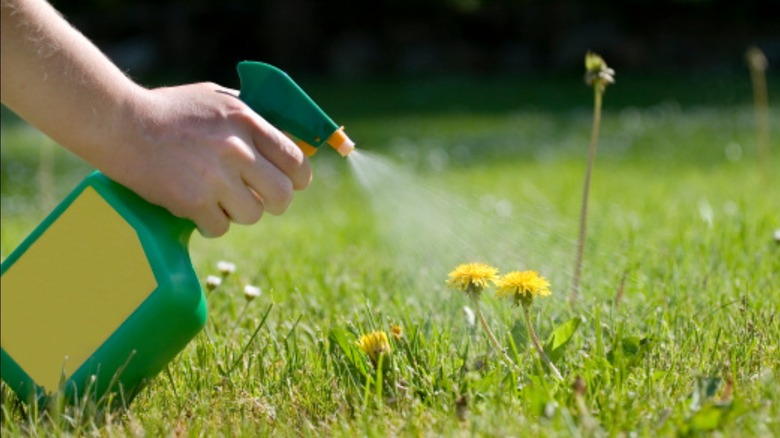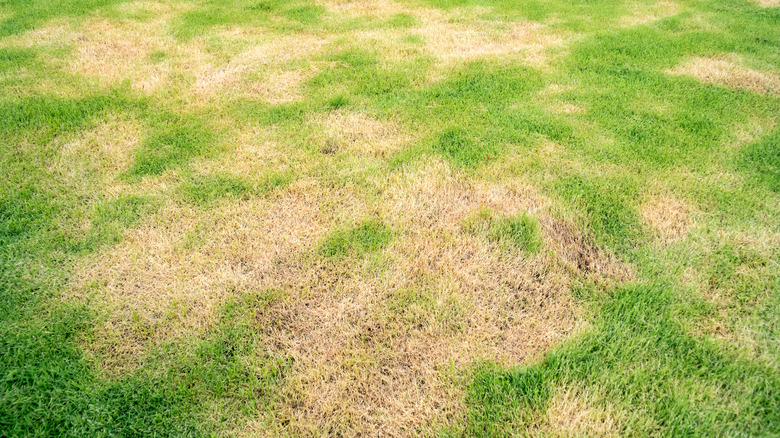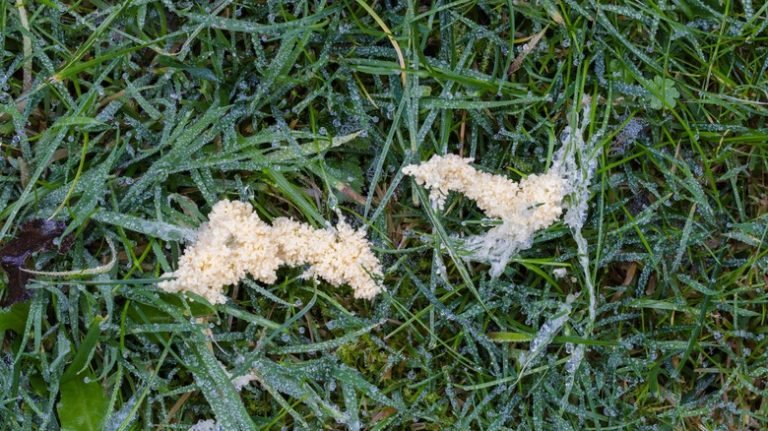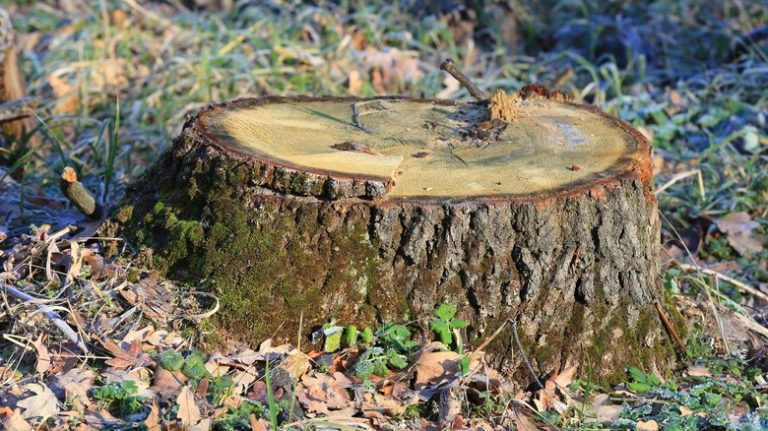Peopleimages/Getty Images
Keeping your lawn healthy and free of weeds can be difficult, and many herbicides contain chemicals that are harmful to humans and pets. While vinegar is great for cleaning, it can also help rid your lawn of weeds, but you’ll have to be careful. Vinegar will kill any plant it comes into contact with, so it’s important to keep it away from your perfectly green grass and the vegetables growing in your garden. Though grass will turn yellow after being sprayed with household vinegar, it will typically only harm the individual blades, leaving the roots unaffected. After about a week, new blades of grass will grow back; however, if your grass is only a few weeks old, it will kill it.
If you have unwanted weeds or grass growing in between your sidewalks or along your driveway, vinegar can help to eliminate those plants. Because of the acetic acid vinegar contains, it will cause plants to dehydrate quickly. This will kill younger weeds that don’t have a strong root system, but perennial weeds with deep roots may need to be treated with vinegar multiple times before they completely die.
How to use vinegar as a natural herbicide

If you want to try using vinegar to kill the weeds in your yard but are worried about harming your grass, try applying the cleaner directly onto the weeds. Rather than filling a spray bottle with vinegar and dispersing it over your entire lawn, grab a paintbrush. This will allow you to brush the weed killer directly onto the leaves and stem of the plant you’re trying to kill without harming others around it. It’s best to do this on a day with lots of sun and no wind or rain. Wind could spread the natural herbicide to other parts of your lawn, while rain will wash it away, rendering it ineffective. If it does rain shortly after you treat the weeds, reapply the vinegar.
Spills happen, and if some of your vinegar ends up on your grass, rinse the area thoroughly with water to help protect the blades from turning yellow. The roots of your grass shouldn’t be harmed even if the liquid touches the soil. Vinegar may also help to get rid of fungus or insects harming your grass. While adding salt and dish soap to the cleaner will increase its potency as an herbicide, this solution should only be used infrequently on the leaves of weeds, as it can negatively impact the soil and deplete its nutrients.
Why vinegar isn’t the best choice for weed control

Regular white vinegar is made up of approximately 5% of acetic acid, and while this is enough to kill some younger annual weeds, it will take multiple applications to have an effect on perennials or weeds with strong roots. If the weeds are established and older than two weeks, it will be difficult to kill them with vinegar, and they will continue to regrow because the acidic cleaner will not affect the roots.
While other types of vinegar have larger concentrations of acetic acid and are more powerful for killing plants, the USDA claims that if it contains 11% or higher, it can burn your skin and damage your eyes. Though vinegar will burn the leaves of your grass, it will not change the pH of your soil. As long as you don’t add salt or soap, you’ll be able to continue growing plants in the areas sprayed with the liquid, but anything touched by the vinegar, including your grass, will become dehydrated and shrivel up. If you’re worried about the potential negative effects of using vinegar on your lawn or if you don’t want to risk your grass becoming patchy, it might be best to stick with chemical herbicides.



